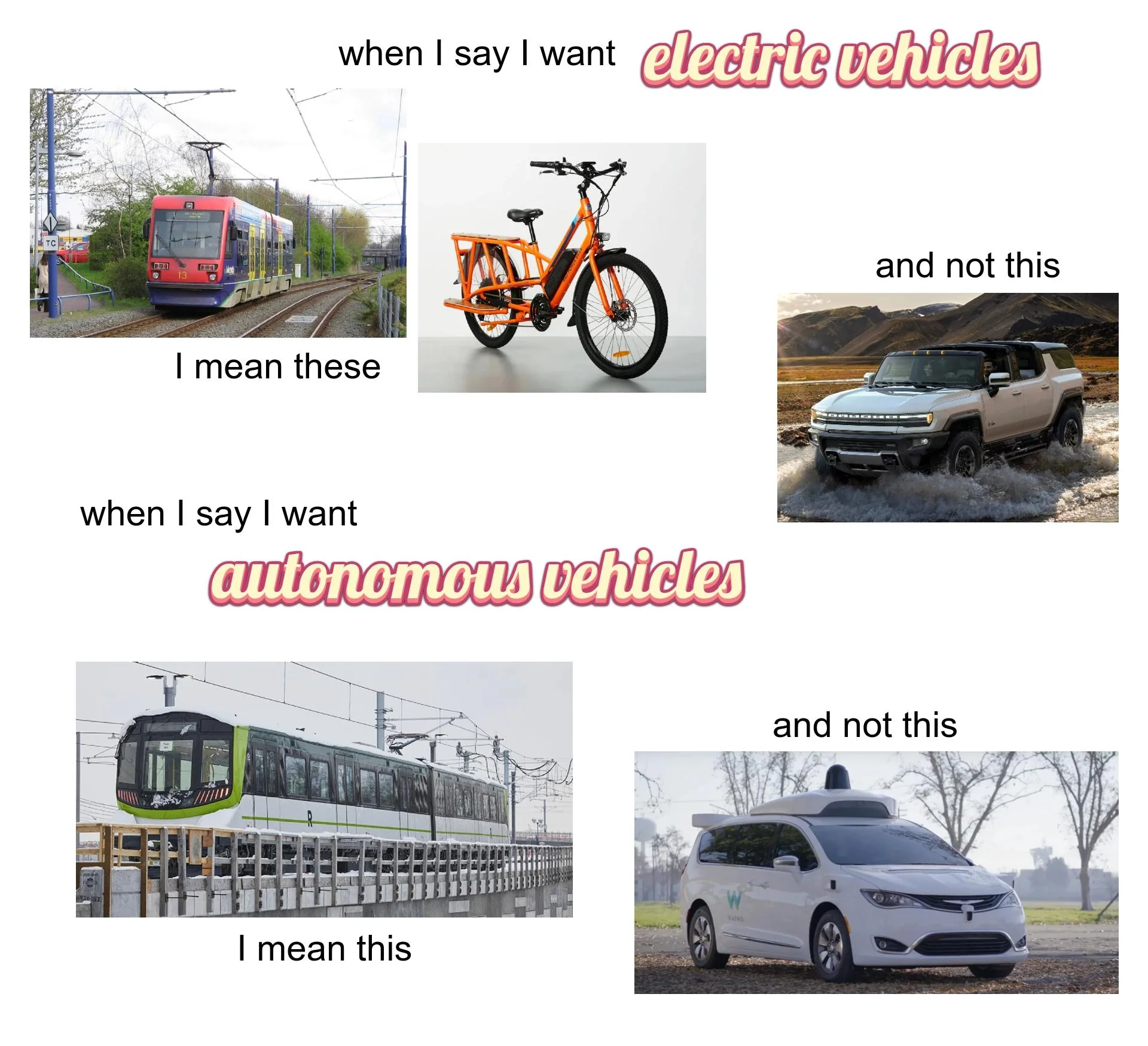view the rest of the comments
Fuck Cars
A place to discuss problems of car centric infrastructure or how it hurts us all. Let's explore the bad world of Cars!
Rules
1. Be Civil
You may not agree on ideas, but please do not be needlessly rude or insulting to other people in this community.
2. No hate speech
Don't discriminate or disparage people on the basis of sex, gender, race, ethnicity, nationality, religion, or sexuality.
3. Don't harass people
Don't follow people you disagree with into multiple threads or into PMs to insult, disparage, or otherwise attack them. And certainly don't doxx any non-public figures.
4. Stay on topic
This community is about cars, their externalities in society, car-dependency, and solutions to these.
5. No reposts
Do not repost content that has already been posted in this community.
Moderator discretion will be used to judge reports with regard to the above rules.
Posting Guidelines
In the absence of a flair system on lemmy yet, let’s try to make it easier to scan through posts by type in here by using tags:
- [meta] for discussions/suggestions about this community itself
- [article] for news articles
- [blog] for any blog-style content
- [video] for video resources
- [academic] for academic studies and sources
- [discussion] for text post questions, rants, and/or discussions
- [meme] for memes
- [image] for any non-meme images
- [misc] for anything that doesn’t fall cleanly into any of the other categories

That would be difficult. High speed transportation infrastructure such as roads for cars and public transit is expencive to operate. If you try to add high quality public transit to a place where lots of money is spent on roads for cars, you need to pay to maintain two expensive infrastruture systems at the same time. Cities cannot afford to do this while maintaining the quality of both.
I think we should stop subsidizing car ownership and use this money for more ethical forms of transportation. This will cause people to decide to use public transit where possible, the increased use of public transit will lead to more funding for public transit which will improve the quality.
This change to subsidies will be painful for people who have been benifiting from the subsidies. For example, drivers will have to pay for parking, and property taxes in low density suburbs will go up, car insurence rates will increase, and you would probably need to pay a tax for miles traveled by car. But I think its worth it, becasue it will be highly benificial for users of public transit, which tend to have lower wealth, and a net positive for society.
I agree that inexpencive low speed infrastructure like bike lanes should be implemented as soon as possible.
The subsidies for cars is quite high, and it ought to be low because it is a destructive form of transportation. The subsidies for transit is quite low and should be high because it is the superior solution to the problem of moving people around.
Car roads having fares to cover costs isn't even a part of the discussion in the US. User fees (mostly gas tax) account for ~1/3 of the cost of roads, and this percentage is declining ^source^. That means people who make the ethical choice of not using a car are paying for those who make the unethical choice of using a car.
In general. I think it is good for the tax code to encourage prosocial behavior. Right now it does the opposite.
This does not match with my experience. Where I live, and almost everywhere I have been, curb parking is usually free. And when its not free, it is highly discounted from the price of the land if you were to use the land for any other purpose.
Also, there are a lot of private lots. This is usually due to the strict parking mandates, where the government forces developers to build parking lots. This leads to a parking abundance where drivers refuse to pay reasonable fees for parking.
I recommend Henry Grabar's recent book, Paved Paradise on the topic of parking.